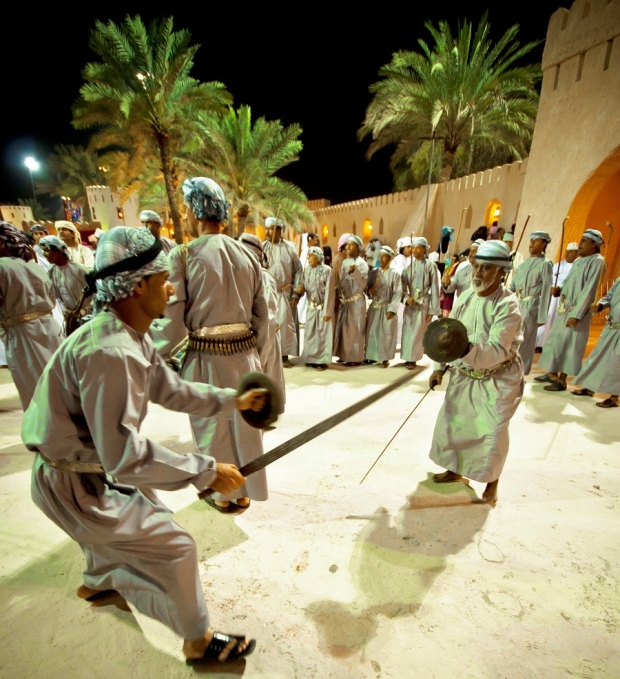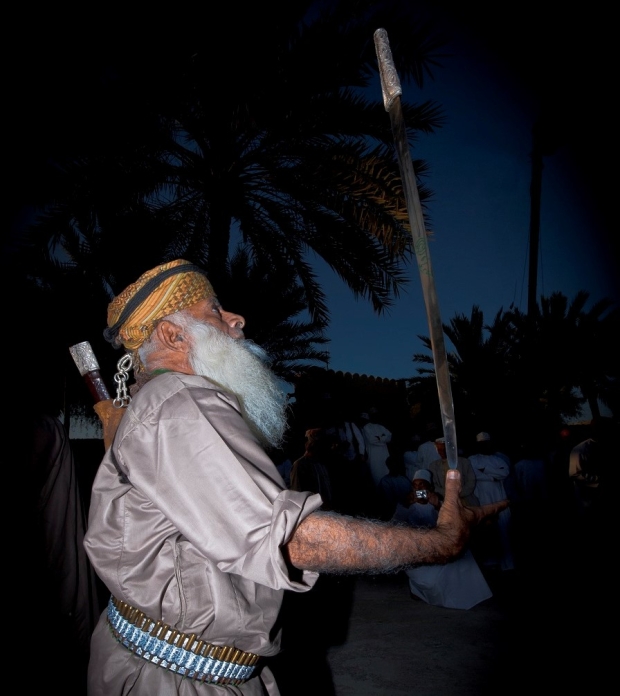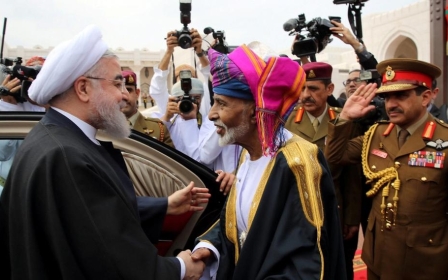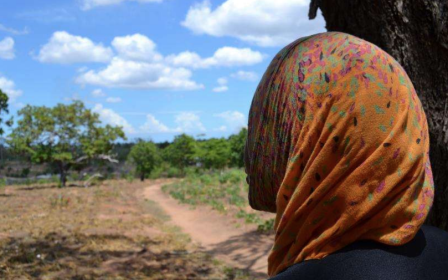Is the UAE claiming Omani traditions as its own?
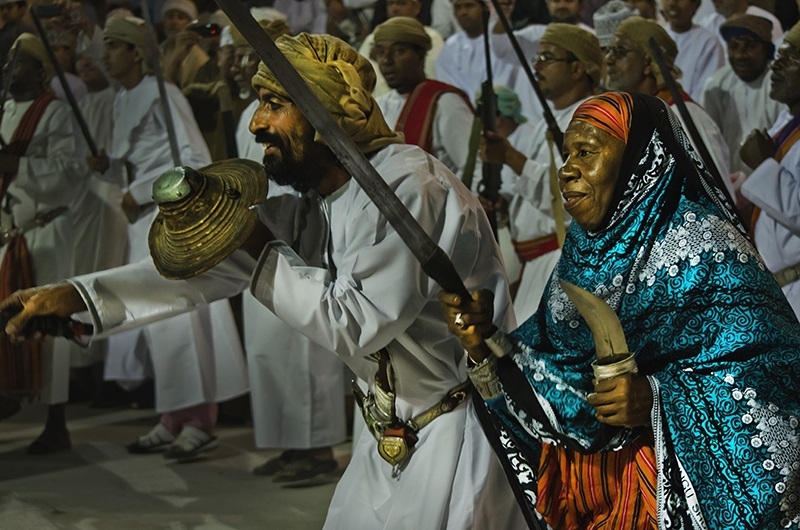
MUSCAT – The young Omani men watching their team play against the United Arab Emirates in the Gulf Cup final break into chants of happiness at a home in Muscat.
Sensing victory is near as the final penalties are being taken, they get on their feet and begin to dance and sing.
Throughout the match on 5 January, the Qatari sports channel Al-Kas played traditional songs familiar to those watching.
Someone has not been paying attention to what they (the Emirates) are doing. We need to defend our tradition
- Malik al-Balushi, businessman
“You see, they are playing al-Azi for the whole night since the game began. They are making a statement to the Emirates,” says one of the group of friends watching in Muscat, who preferred not to be named.
Al-Azi is a tradition of sung poetry that for decades was integral to Omani culture and sung on all national occasions such as football matches and military parades.
On the day of the final, a new football-themed al-Azi song was released to celebrate Oman's win against the UAE, sung by Omani star singer Salah al-Zadjali.
When Oman scored against Bahrain during the Gulf Cup semi-finals on 2 January, an Omani commentator broke into an al-Azi song live on air on Qatar’s Al-Kas TV station.
In late 2017, the United Arab Emirates, which borders Oman, made a high-profile application through UNESCO, the UN's world heritage body, to claim al-Azi music as its own.
UNESCO, which had backed Oman’s claim for years, appeared to switch sides when a committee on intangible heritage backed the UAE claim in December.
The Oman flag belongs to the UAE, the Kumma (Omani woven hat). Even the khanjar, which everyone knows is Omani; now they are presenting it to their guests at events
- Omani doctor
The annual UNESCO meeting in South Korea decided al-Azi "is a significant and important cultural heritage performance, reflecting UAE culture and Emirati society", the National newspaper reported.
“Al-Azi's inclusion in UNESCO’s Intangible Cultural Heritage in Need of Urgent Safeguarding list is reflective of our leadership's directives to support our authentic cultural heritage,” said Mohamed Khalifa al-Mubarak, chairman of the Department of Culture and Tourism in Abu Dhabi, following the announcement.
The popular reaction over the border in Oman has, however, been a mix of uproar and derision. As far as many Omanis are concerned, this is a flagrant appropriation by the UAE of a centuries-old tradition that was never part of culture in the regions and tribes that became the new Emirati state in 1971.“If you think about it, the whole of the UAE was part of Oman before 1970. It’s been divided by history - it was all one country before. But now, with all these claims by the UAE, it begins like a fight,” says a doctor from Muscat.
What really riles the Omanis is that the al-Azi UNESCO move is one of many cultural claims by the UAE - such as the ceremonial khanjar dagger - which have been national icons for centuries. "They are taking so many things from us, not just al-Azi," the doctor adds.
“Now there are jokes, even during the football final - like the goal belongs to UAE, the Oman flag belongs to UAE, the kumma [Omani woven hat]. Even the khanjar, which everyone knows is Omani; now they are presenting it to their guests at events.”
Different traditions
Abdullah Riyami is an Omani musician who studied Gulf song culture in Kuwait and records traditional songs and dances of Oman, including al-Azi. He says the Emirati claims to al-Azi are not valid, since the traditions of the countries are different.
"They have no right to claim al-Azi," he says. “It is a very old Omani tradition, because Oman in earlier times was an empire, and it was practised in all the regions of the country.”
The Rahza would be accompanied by horns and drums. Then the poets would begin their recitations, the al-Azi, opening with a melodious 'Allahu akhbar (God is great)'.
The history belongs to all of us. You can’t say it belongs to one country alone. Until five or 10 years back there was no al-Azi at any public event in the UAE
- Omani doctor
“Rahza came from a time, hundreds of years ago, when the tribes fought each other. So if one of these tribes won, they go back to their villages and they perform a kind of pantomime, without words. They fight using swords just like a play,” Riyami says.
They also say some words that extol the tribe and its leader’s strength and courage to defeat its enemies. “But now it’s used on different occasions, such as weddings. At the end of Rahza we can find al-Azi, it is part of al-Rahza.
“Oman and Emirates have different kinds of Rahza, but at the end of Rahza in Emirates, there is no al-Azi,” says Riyami.
Back in 2012, Oman’s claim to al-Azi was accepted by UNESCO.
“Al-Azi is a genre of sung poetry performed in the northern regions of the Sultanate of Oman. It constitutes one of the major expressions of Omani cultural and musical identity,” according to UNESCO's Intangible Cultural Heritage of Humanity, which catalogues and offers protection to cultural practices and traditions.
“Al-Azi is performed at all national and social occasions as an emblem of social pride, strength and unity,” it added.
Live and let live
Riyami asserts that the al-Azi tradition stops 200km south of the Emirates' border with Oman.
“In Musandan and Batinah in the north of Oman, it is a war song to strengthen the spirit and courage of the tribe, without al-Azi.”
Oman’s Ministry of Culture has in the past taken a live-and-let-live stance in regards to the UAE’s cultural claims, accepting that they both have similar traditions. In 2012, the UAE and Oman put in a joint nomination at UNESCO for al-Tagrouda, a tradition of Bedouin poetry they share.
“We have common things," says Malik al-Balushi, a small businessman in Muscat. “We all have different cultures and ways of life.”
But according to some Omanis, the UAE's claim on the al-Azi is the equivalent of the British claiming French champagne or Brie cheese as their own.
What the UAE is saying is not wrong, because it used to be one country. It’s ok to say that
- Omani researcher
“When they applied for it there was a big hype in the UAE media, in all the newspapers, which pissed off Omanis,” says an Omani researcher, who wished to remain anonymous. “Because this is not the first time the UAE claimed an Omani thing was theirs; they have done this with historical figures."
He adds: "What the UAE is saying is not wrong, because it used to be one country. It’s OK to say that.”
On the other hand, the doctor argues: “The history belongs to all of us. You can’t say it belongs to one country alone. Until five or 10 years back there was no al-Azi at any public event in [the] UAE."
The mutual relationship between the Emirates and Oman has been sensitive and at times troubled, given the two countries’ shared modern history, and the tribal and ethnic proximity between inhabitants living across the new international boundary drawn in 1971, according to Marc Valeri, an Oman expert at Britain's University of Exeter.
This clash came to a head during the Gulf Cup final when Oman faced off against the UAE, adds the researcher. “For payback the Qatari media and the Omani media kept playing the al-Azi music throughout the day and during the tournament."
Qatar’s Al-Kas TV coverage pointedly played al-Azi music to mark Oman’s victory throughout the night, in a not very subtle dig at the Emiratis’ claim on the tradition.
Qataris, who are under a land and air economic siege led by the Emirates and its Saudi allies, celebrated the Omani victory over the UAE with almost as much zeal as the Omanis.
Qatar taking sides during the Gulf Cup was clearly sending a message
- Omani researcher
“The thing is Oman never actually confronted [the] UAE; they did it in a very humorous way. They never actually went to court. But Qatar taking sides during the Gulf Cup was clearly sending a message,” said the researcher.
Others take a harsher view, seeing the claim as based mainly on migration of the tradition from Oman and the desire of the recently created Emirates state to take cultural traditions from Oman’s rich history.
“Under Sultan Said bin Taimur” – the current sultan’s father – “the Emirates was known as Sahel Oman, it was one big territory, part of Oman’s empire,” says Balushi.
“Someone has not been paying attention to what they (the Emirates) are doing. We need to defend our tradition.”
This article is available in French on Middle East Eye French edition.
Middle East Eye propose une couverture et une analyse indépendantes et incomparables du Moyen-Orient, de l’Afrique du Nord et d’autres régions du monde. Pour en savoir plus sur la reprise de ce contenu et les frais qui s’appliquent, veuillez remplir ce formulaire [en anglais]. Pour en savoir plus sur MEE, cliquez ici [en anglais].


